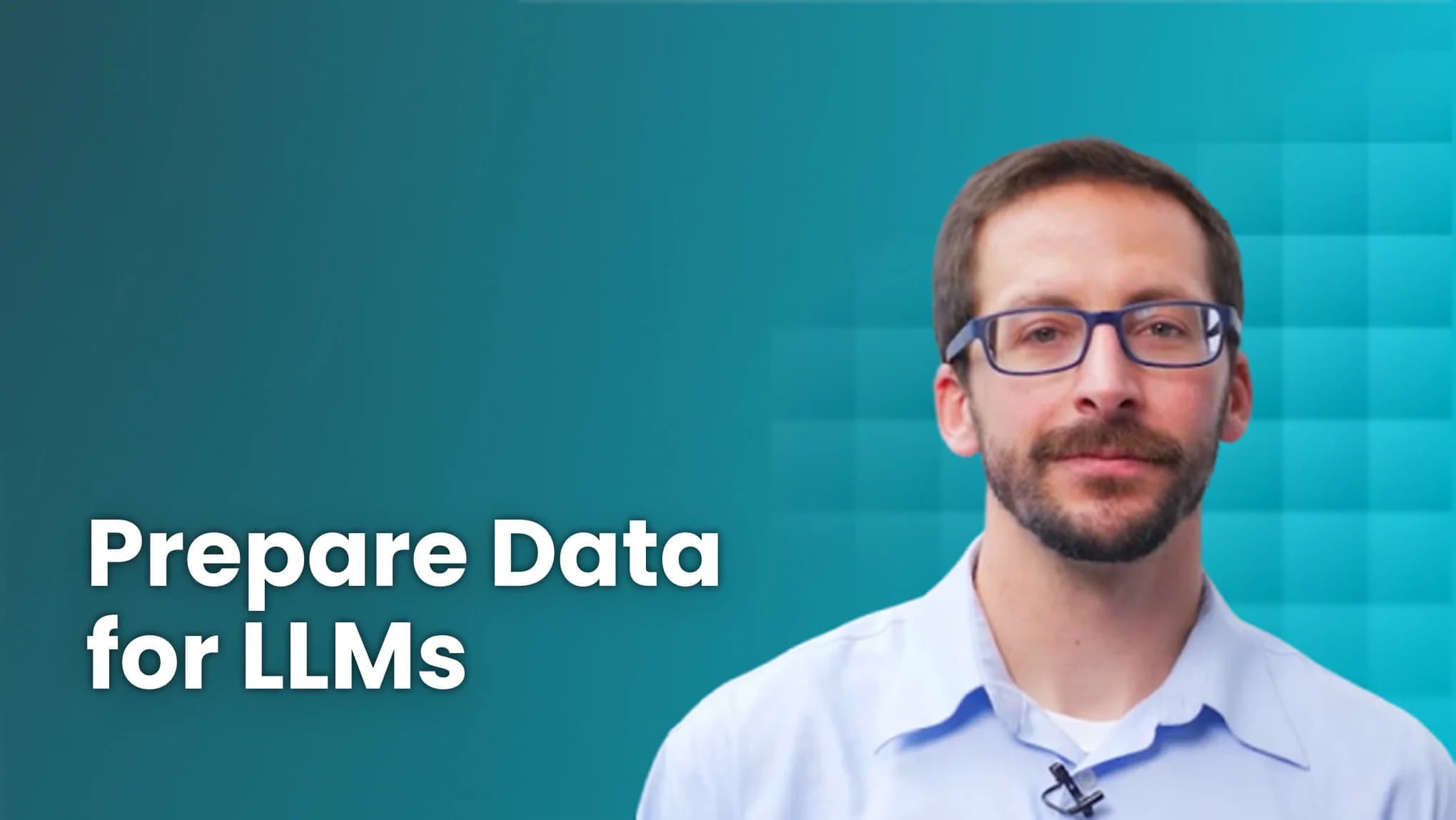Preprocessing Unstructured Data for LLM Applications
Instructor: Matt Robinson

- Beginner
- 1 Hour 12 Minutes
- 8 Video Lessons
- 5 Code Examples
- Instructor: Matt Robinson
What you'll learn
Learn to extract and normalize content from a wide variety of document types, such as PDFs, PowerPoints, Word, and HTML files, tables, and images to expand the information accessible to your LLM.
Enrich your content with metadata, enhancing retrieval augmented generation (RAG) results and supporting more nuanced search capabilities.
Explore document image analysis techniques like layout detection and vision and table transformers, and learn how to apply these methods to preprocess PDFs, images, and tables.
About this course
Enhancing a RAG system’s performance depends on efficiently processing diverse unstructured data sources.
In this course, you’ll learn techniques for representing all sorts of unstructured data, like text, images, and tables, from many different sources and implement them to extend your LLM RAG pipeline to include Excel, Word, PowerPoint, PDF, and EPUB files.
Join this course and learn:
- How to preprocess data for your LLM application development, focusing on how to work with different document types.
- How to extract and normalize various documents into a common JSON format and enrich it with metadata to improve search results.
- Techniques for document image analysis, including layout detection and vision transformers, to extract and understand PDFs, images, and tables.
- How to build a RAG bot that is able to ingest different documents like PDFs, PowerPoints, and Markdown files.
Apply the skills you’ll learn in this course to real-world scenarios, enhancing your RAG application and expanding its versatility.
Who should join?
Anyone who is interested in learning how to effectively process and use diverse data types and formats to build high-performing LLM RAG systems.
Course Outline
8 Lessons・5 Code ExamplesIntroduction
Video・4 mins
Overview of LLM Data Preprocessing
Video・3 mins
Normalizing the Content
Video with code examples・14 mins
Metadata Extraction and Chunking
Video with code examples・21 mins
Preprocessing PDFs and Images
Video with code examples・10 mins
Extracting Tables
Video with code examples・8 mins
Build Your Own RAG Bot
Video with code examples・9 mins
Conclusion
Video・1 min
Quiz
Reading・1 min
Instructor
Preprocessing Unstructured Data for LLM Applications
- Beginner
- 1 Hour 12 Minutes
- 8 Video Lessons
- 5 Code Examples
- Instructor: Matt Robinson
Course access is free for a limited time during the DeepLearning.AI learning platform beta!
Want to learn more about Generative AI?
Keep learning with updates on curated AI news, courses, and events, as well as Andrew’s thoughts from DeepLearning.AI!

